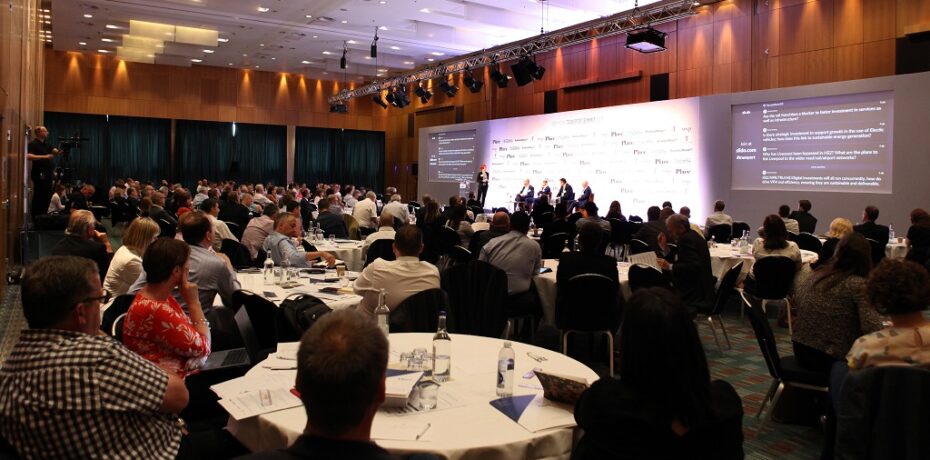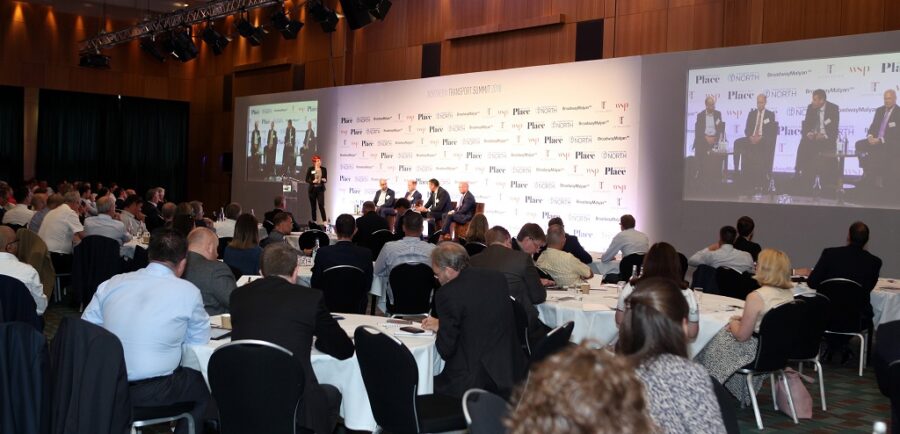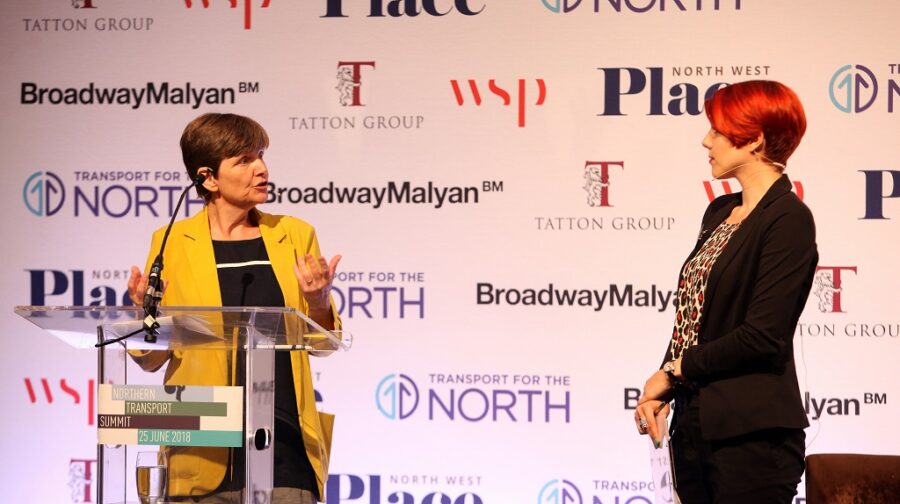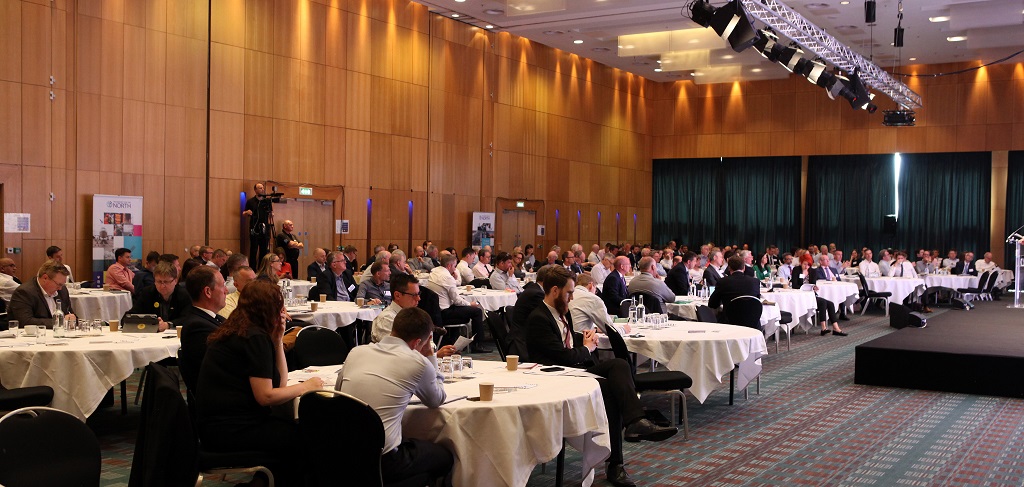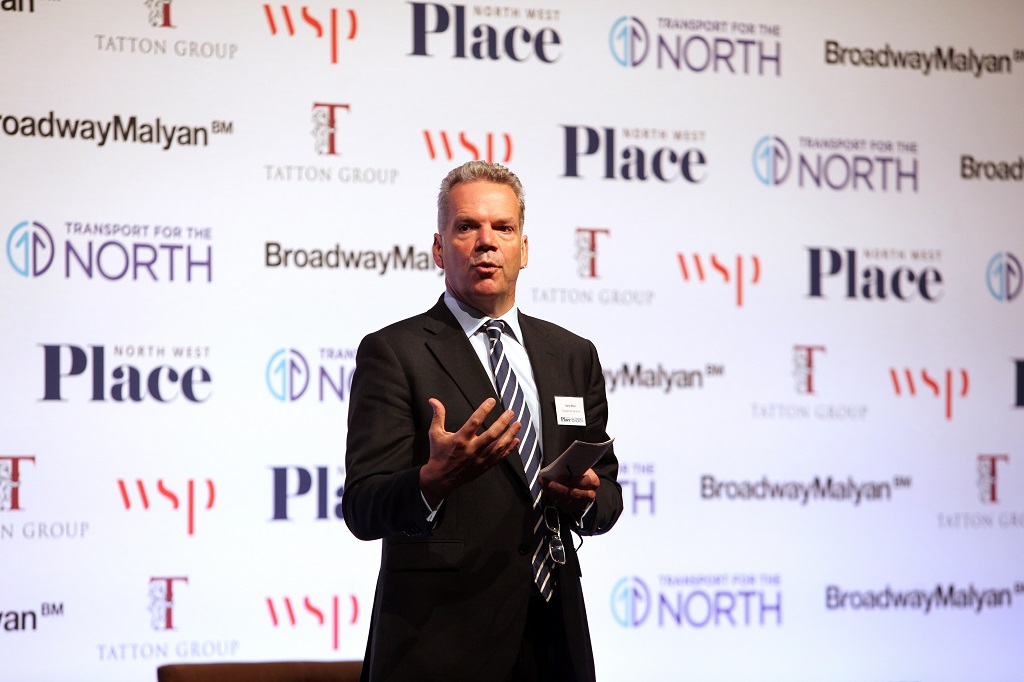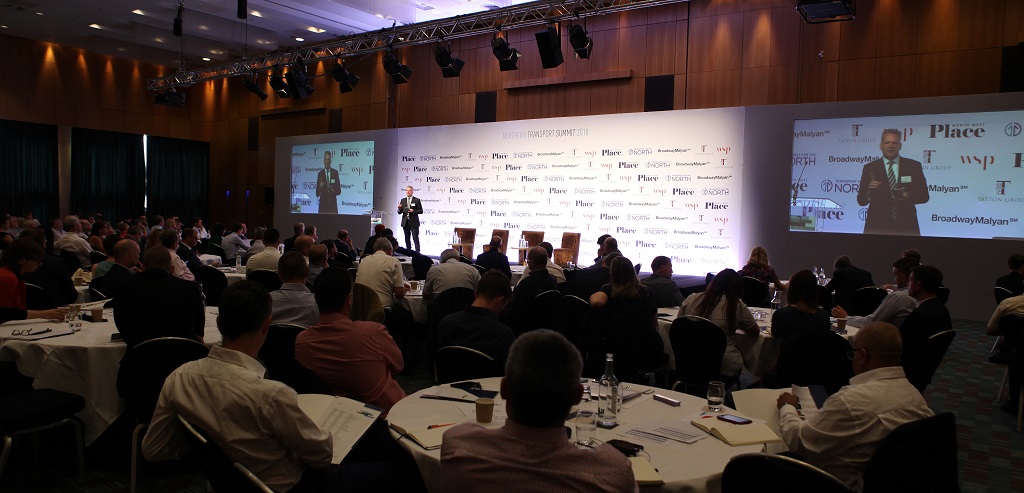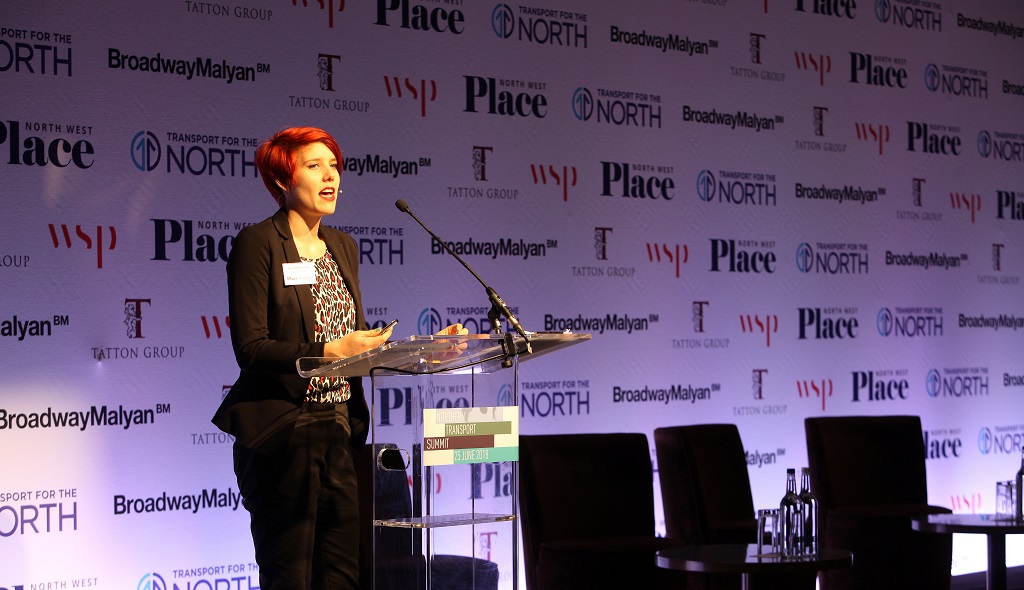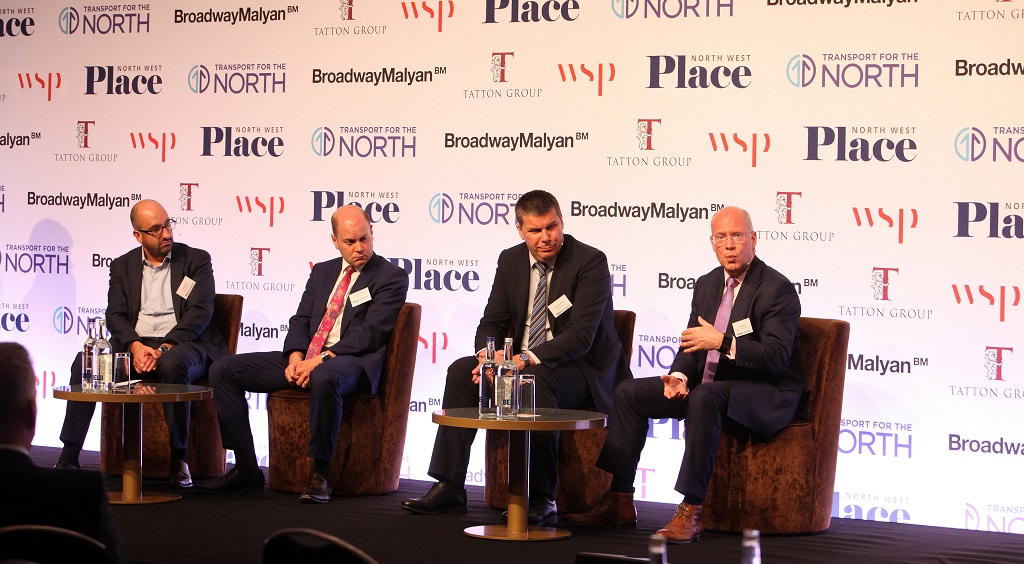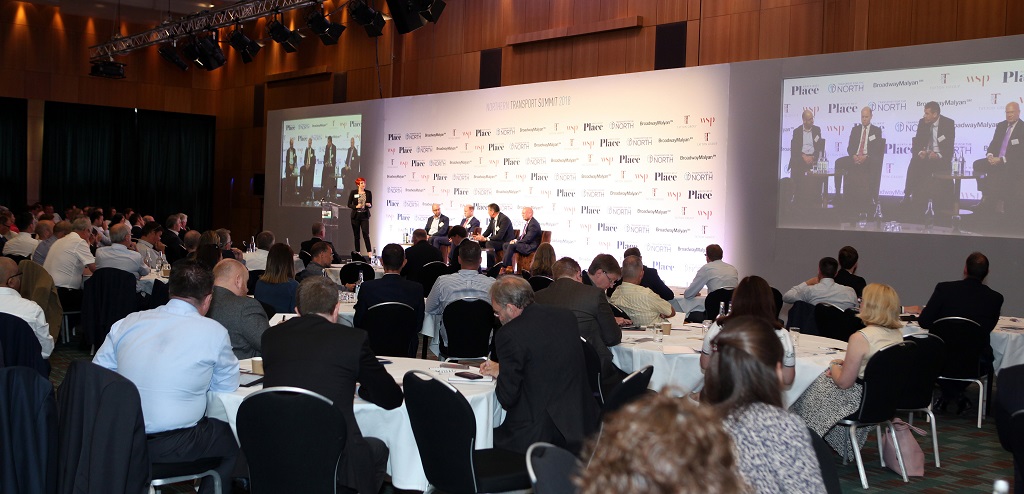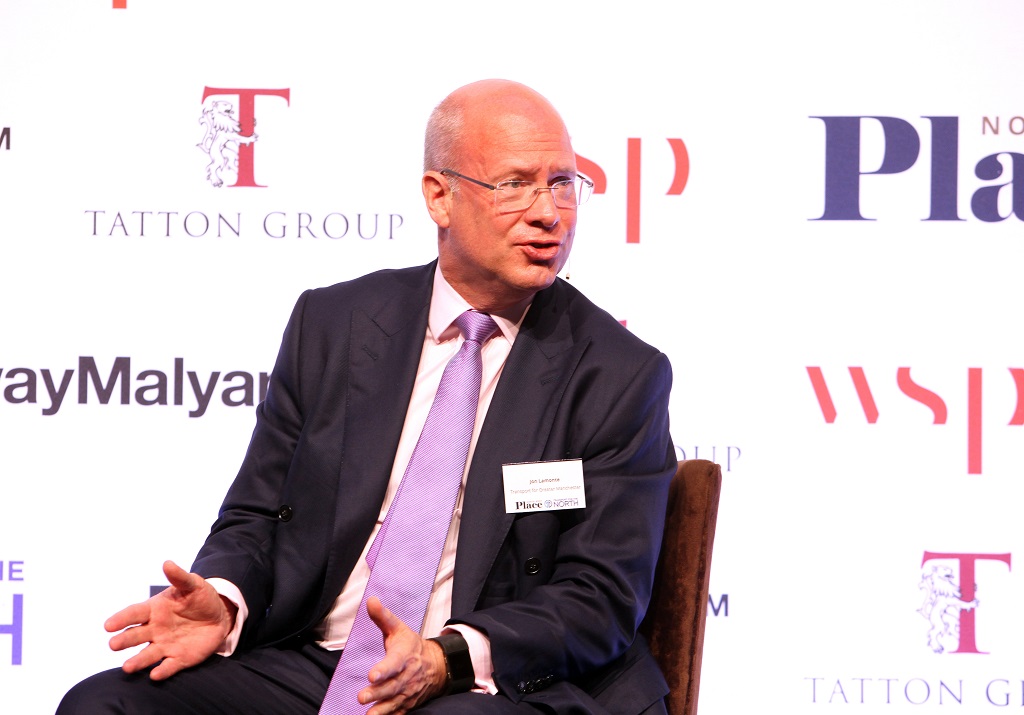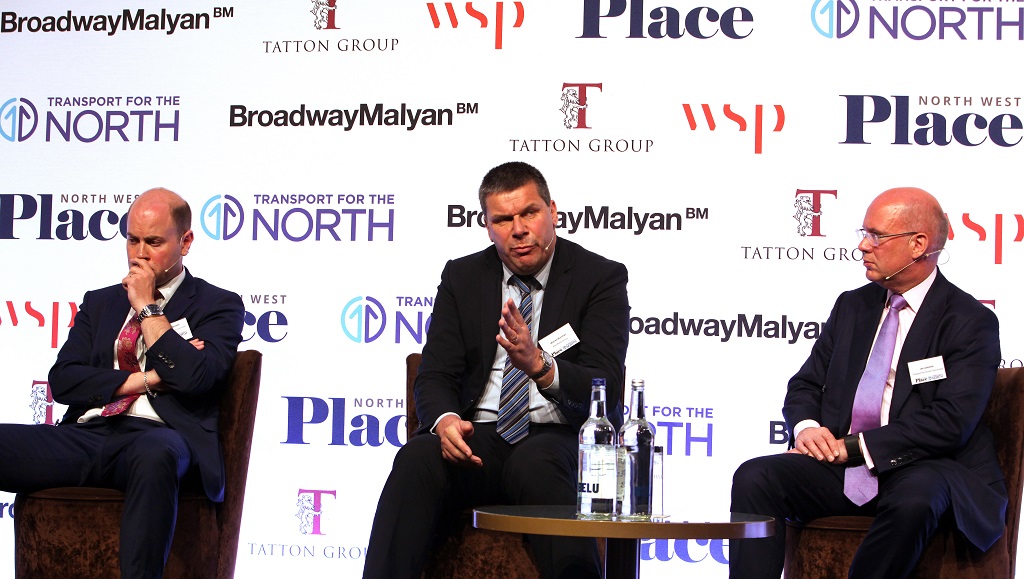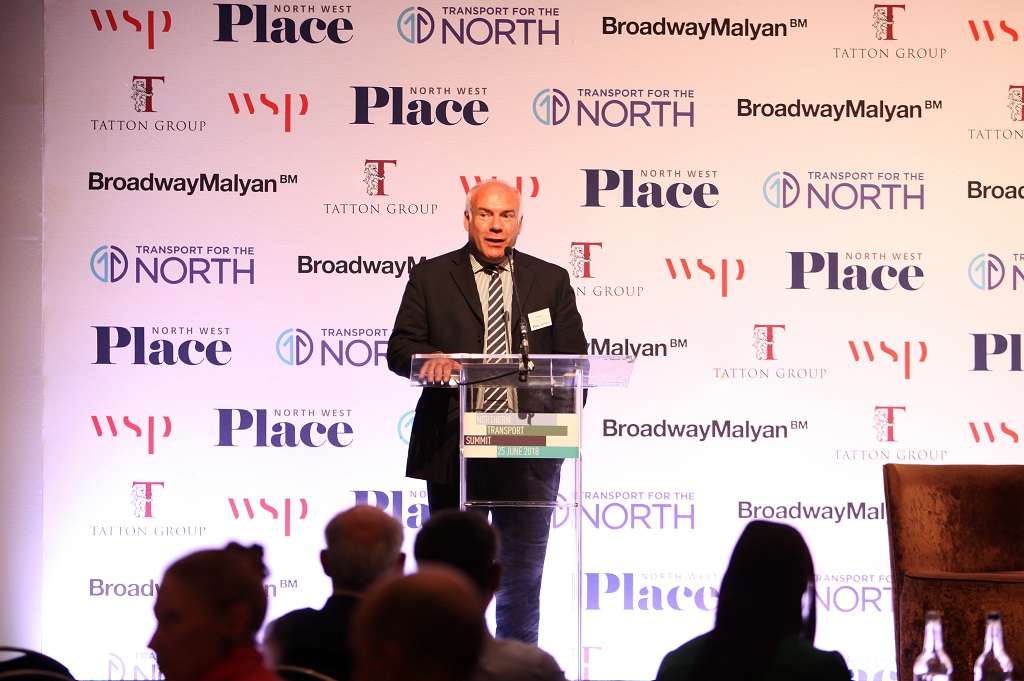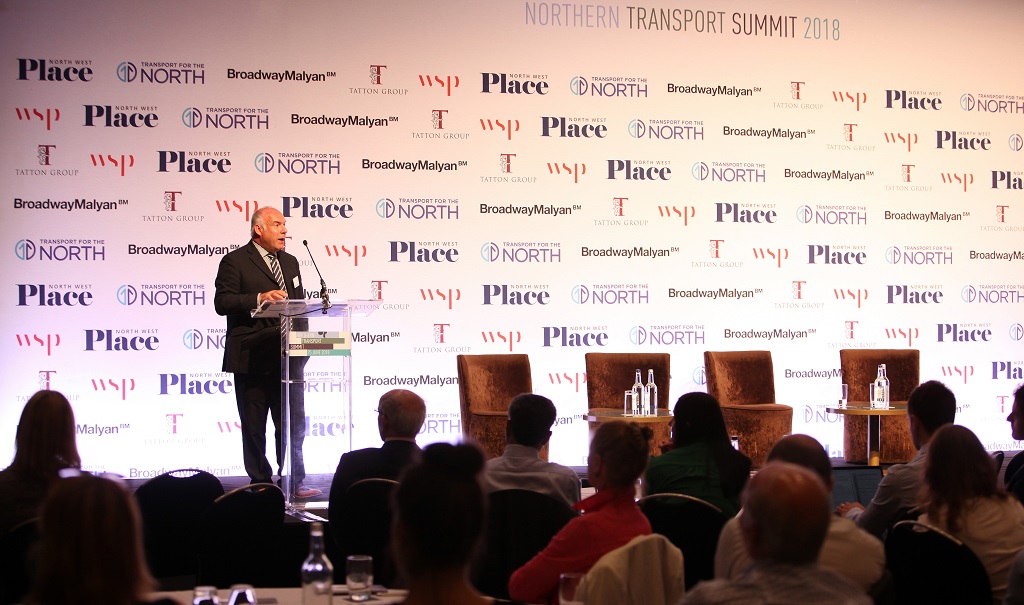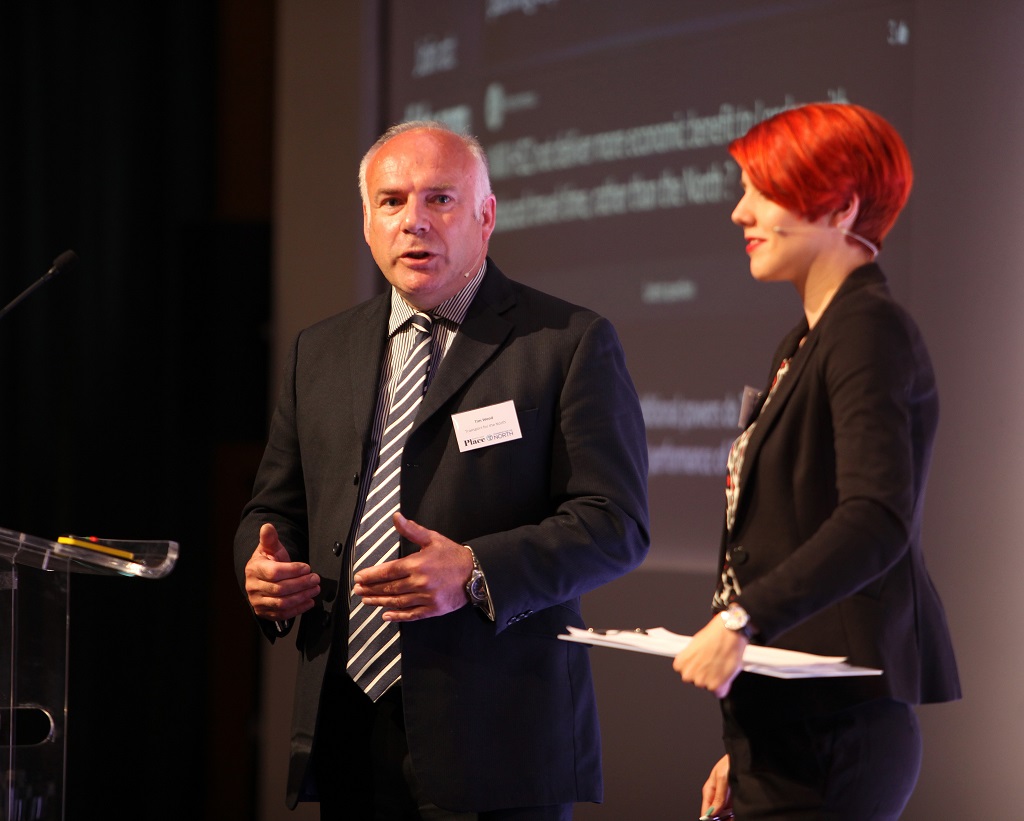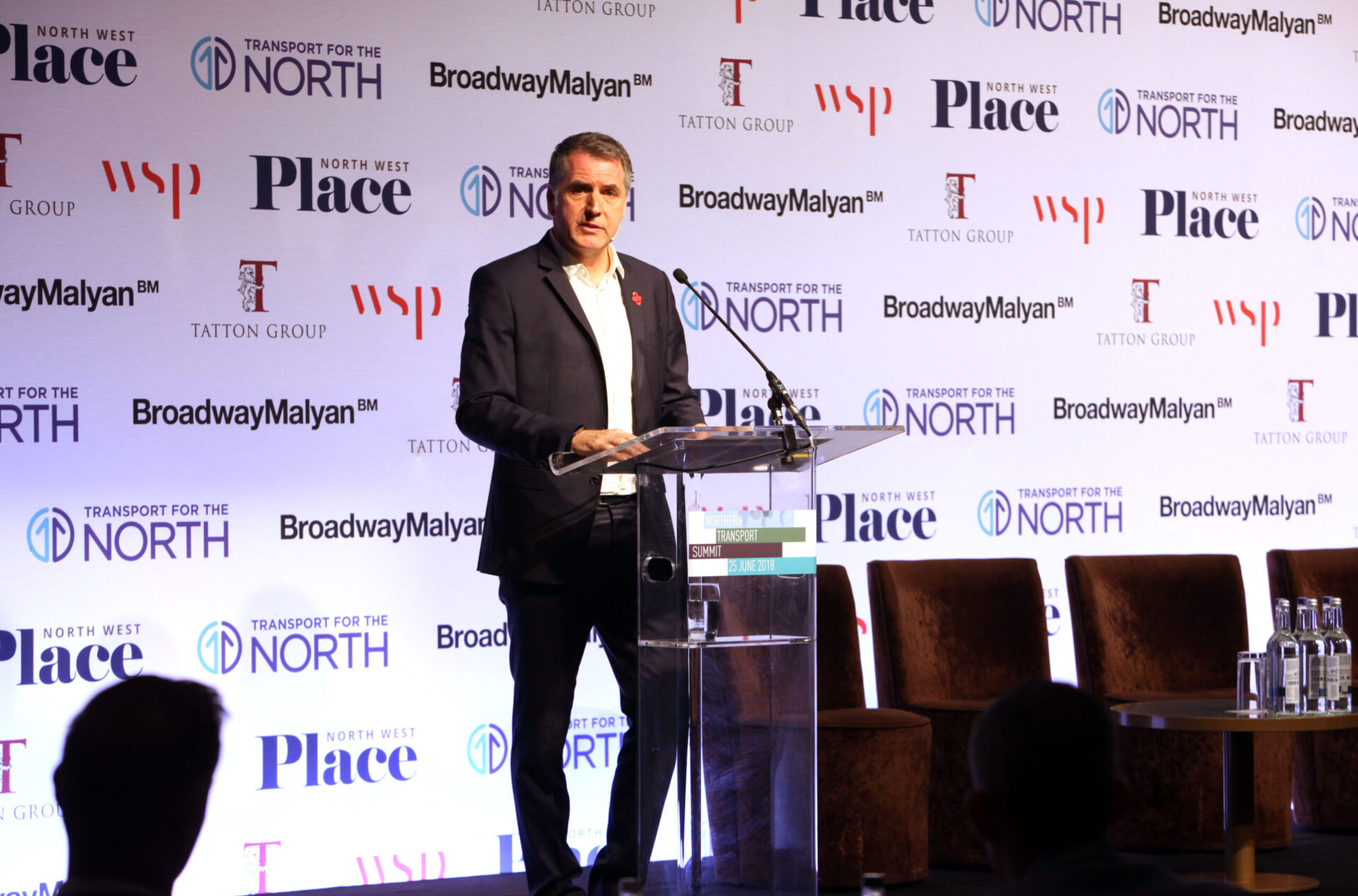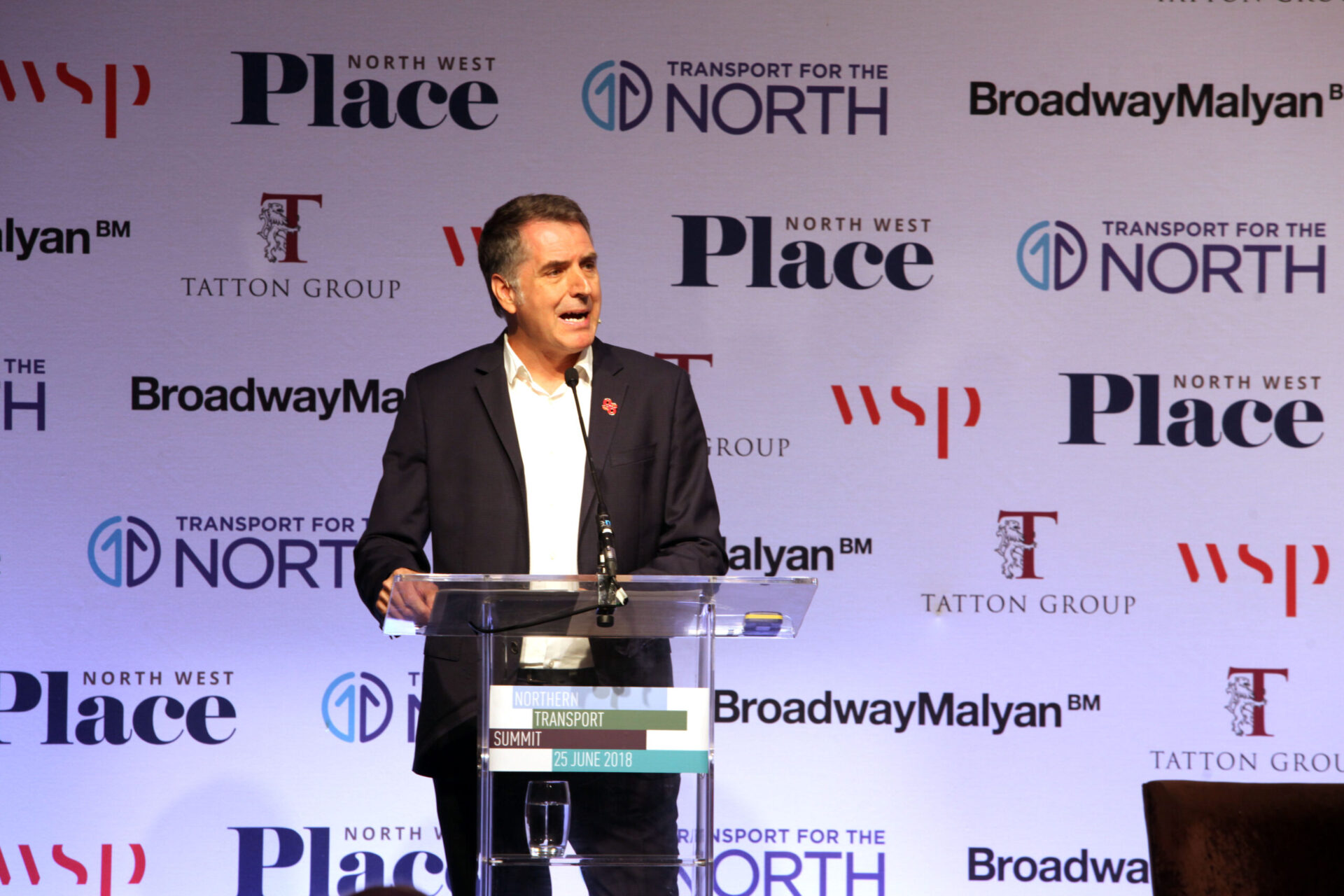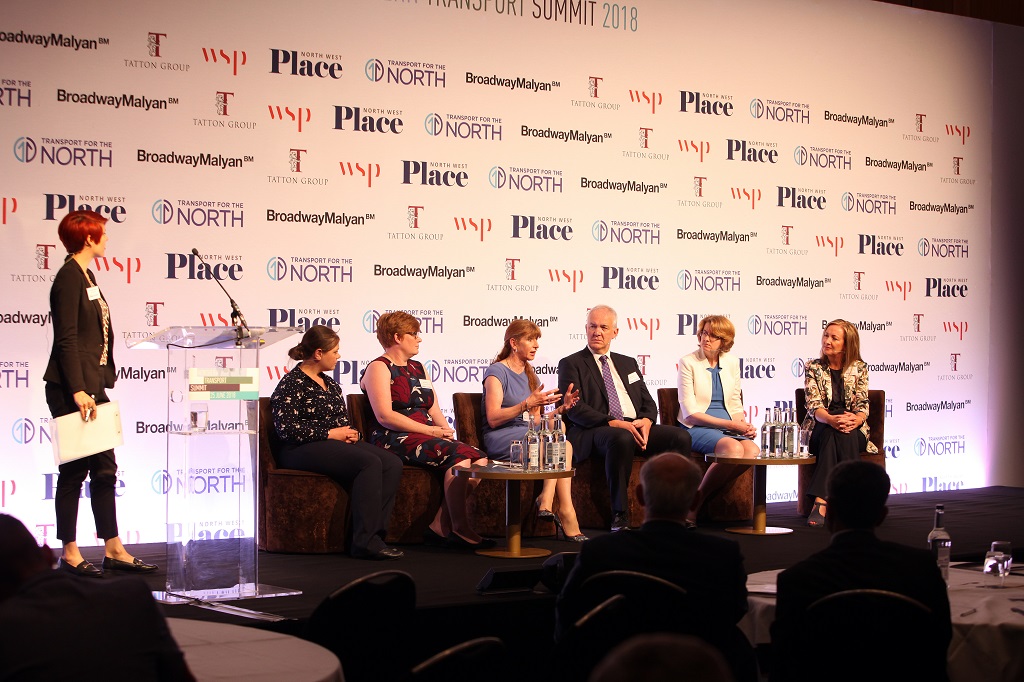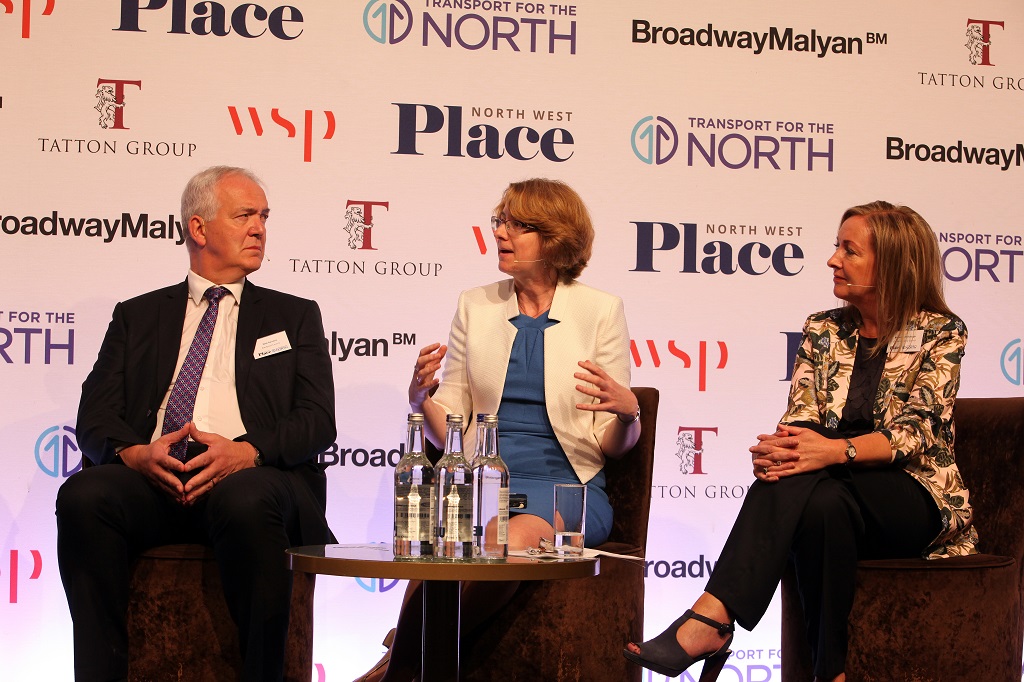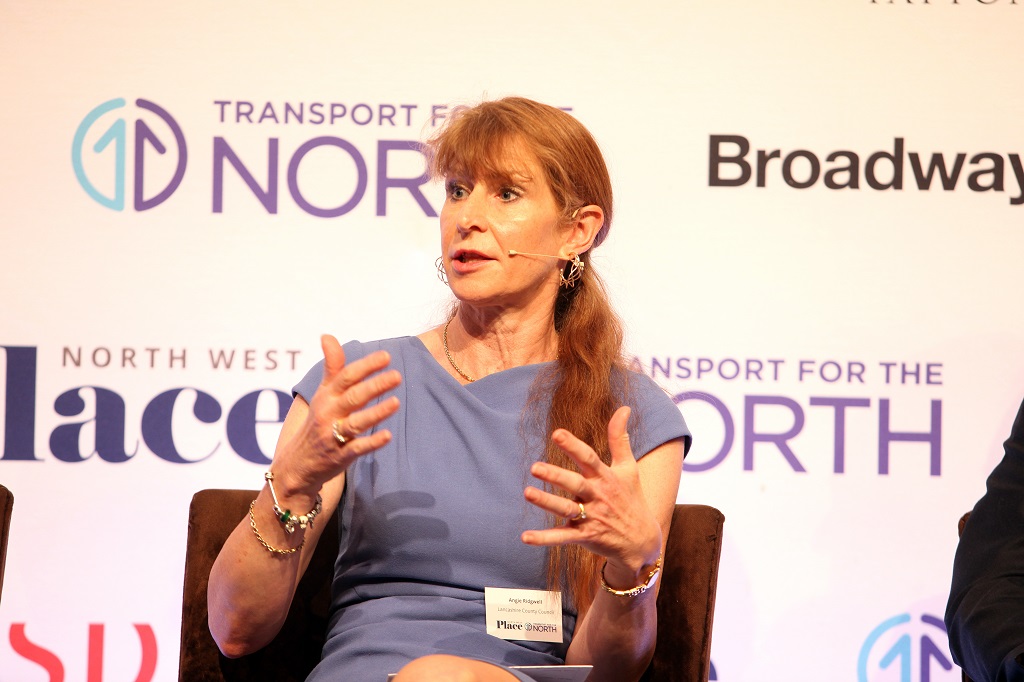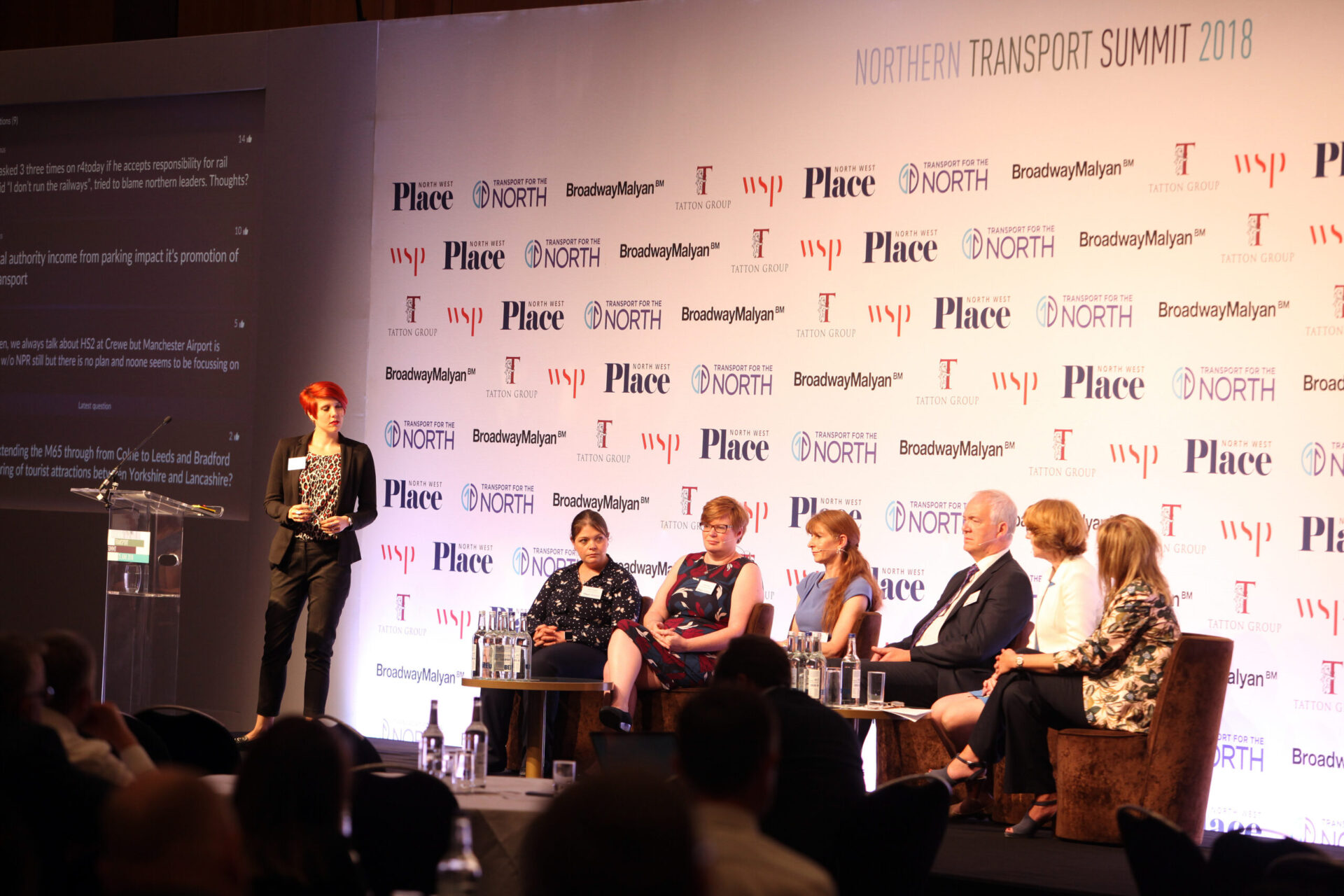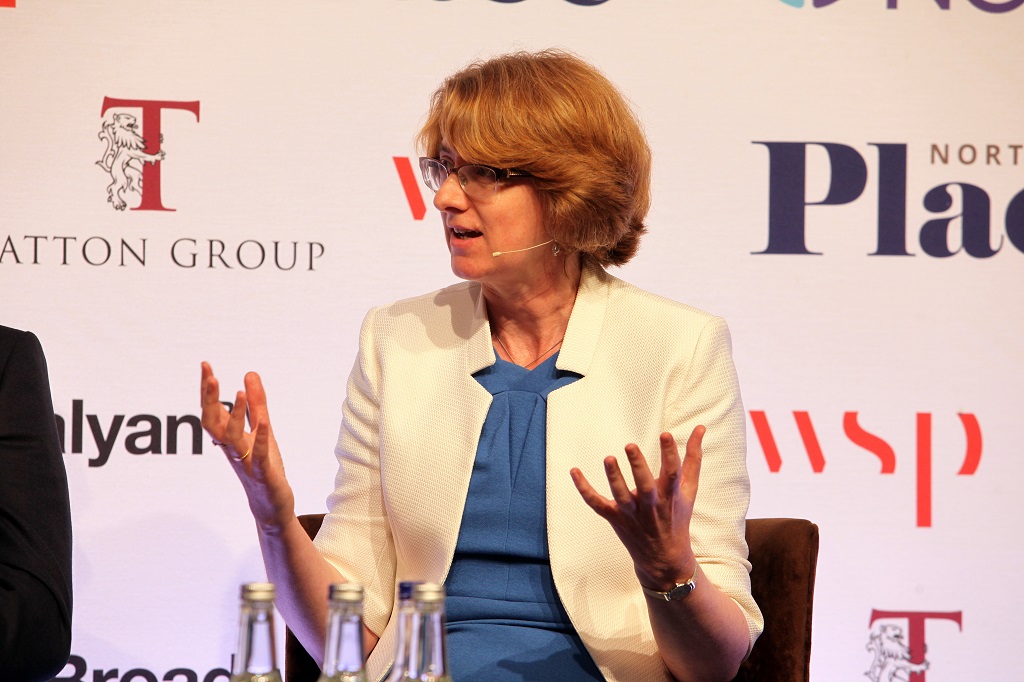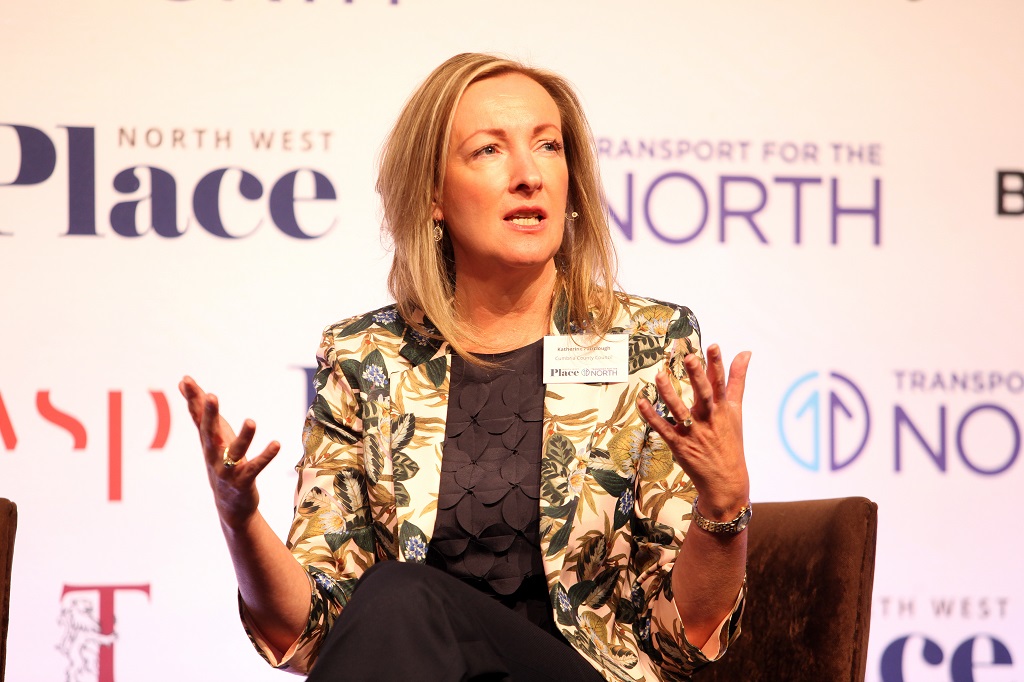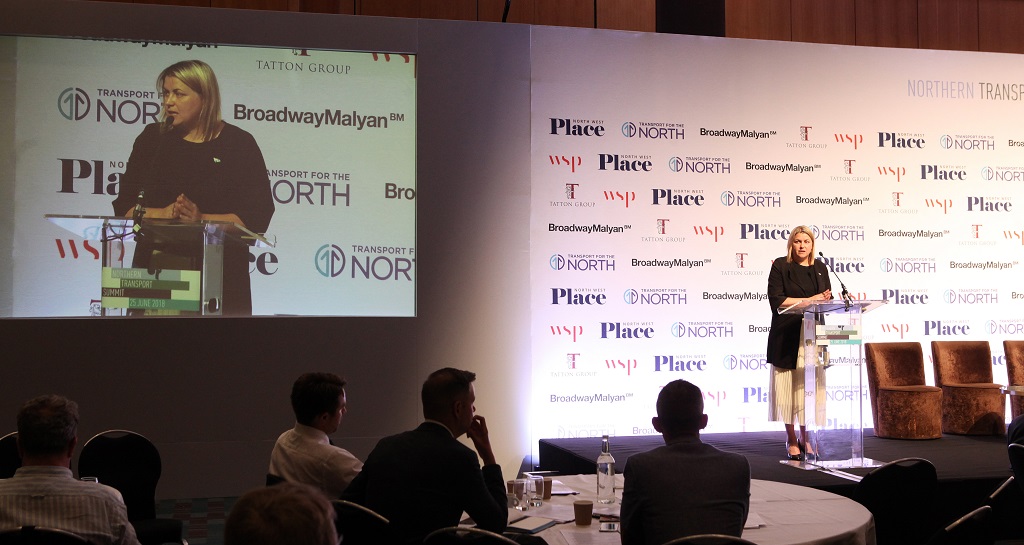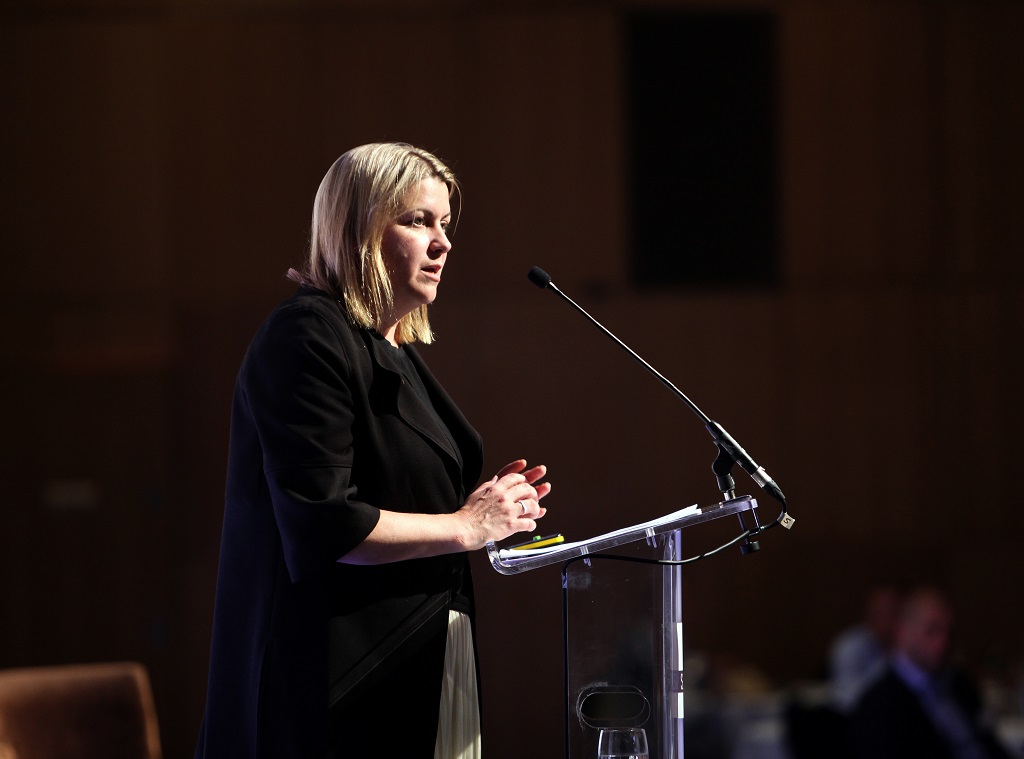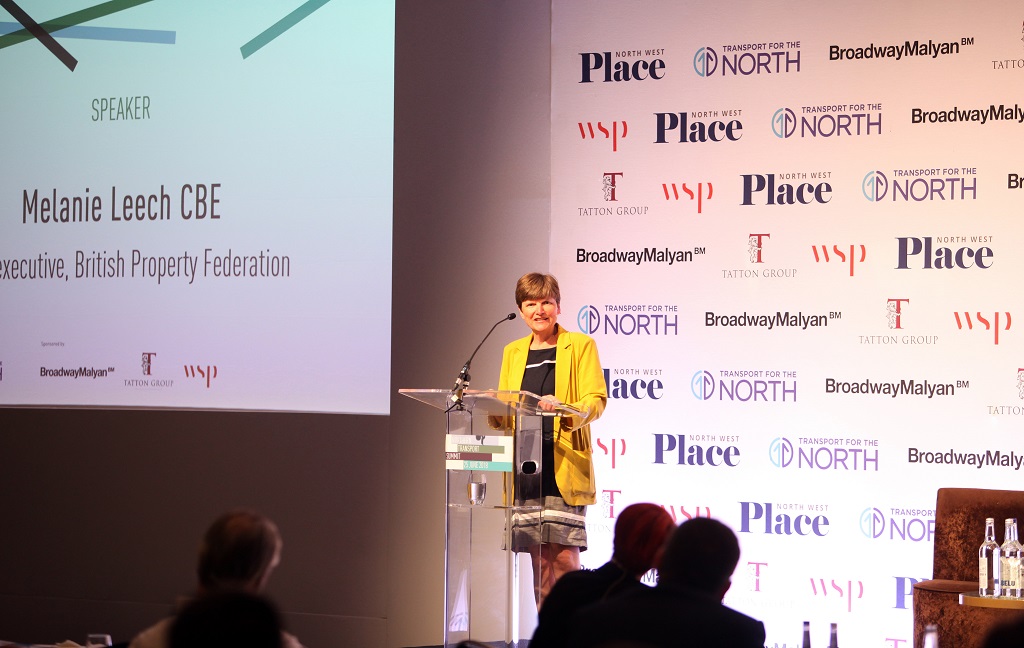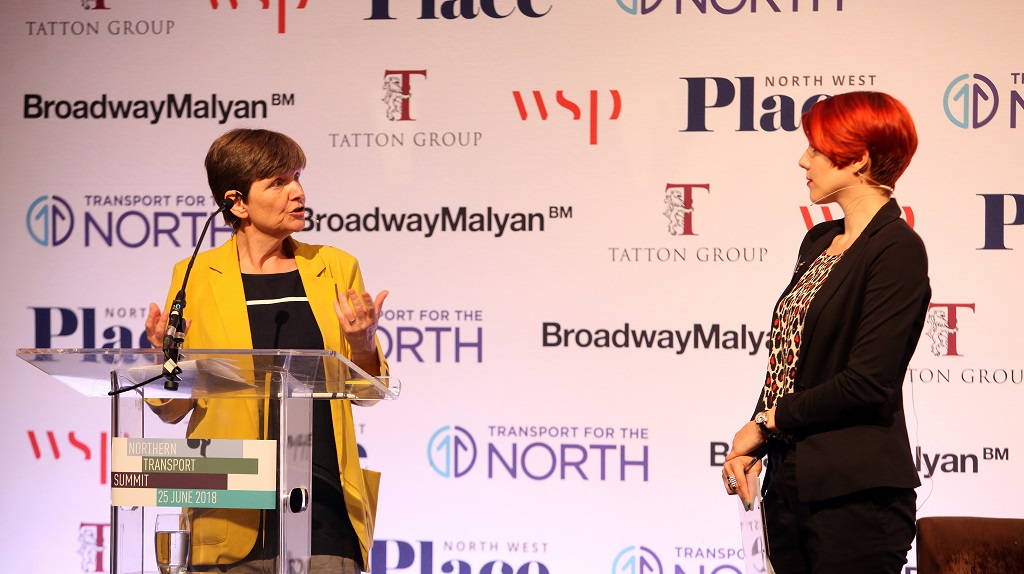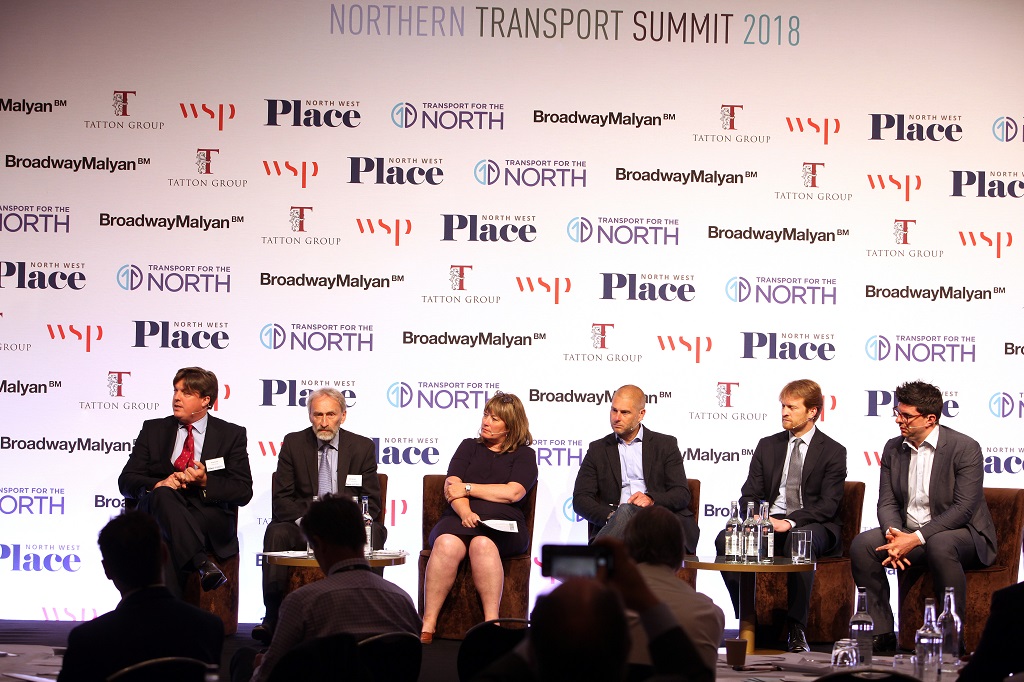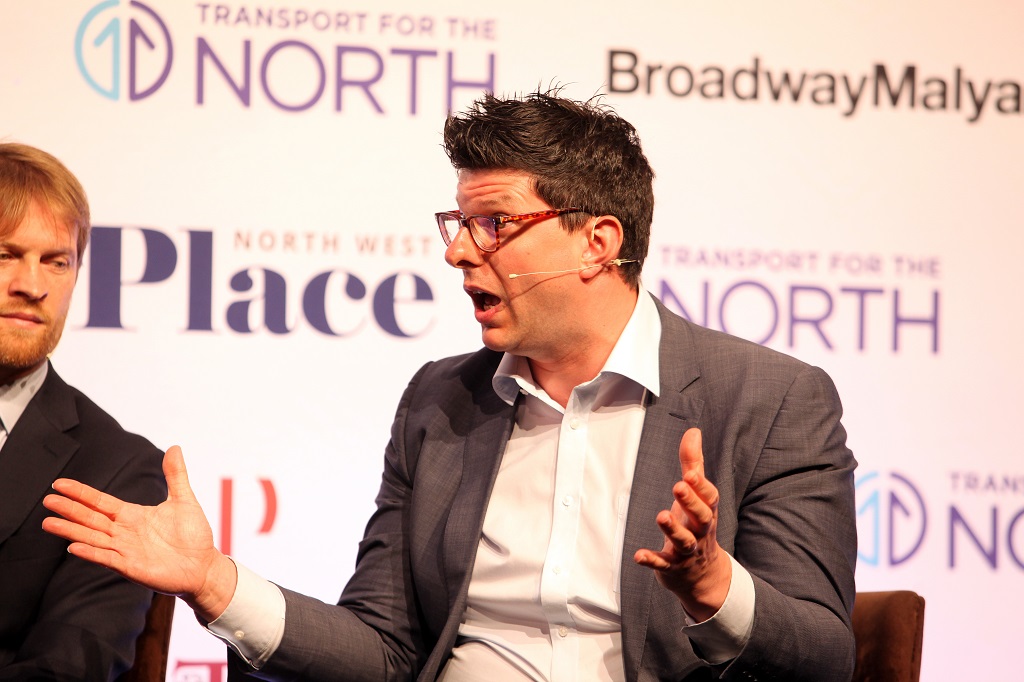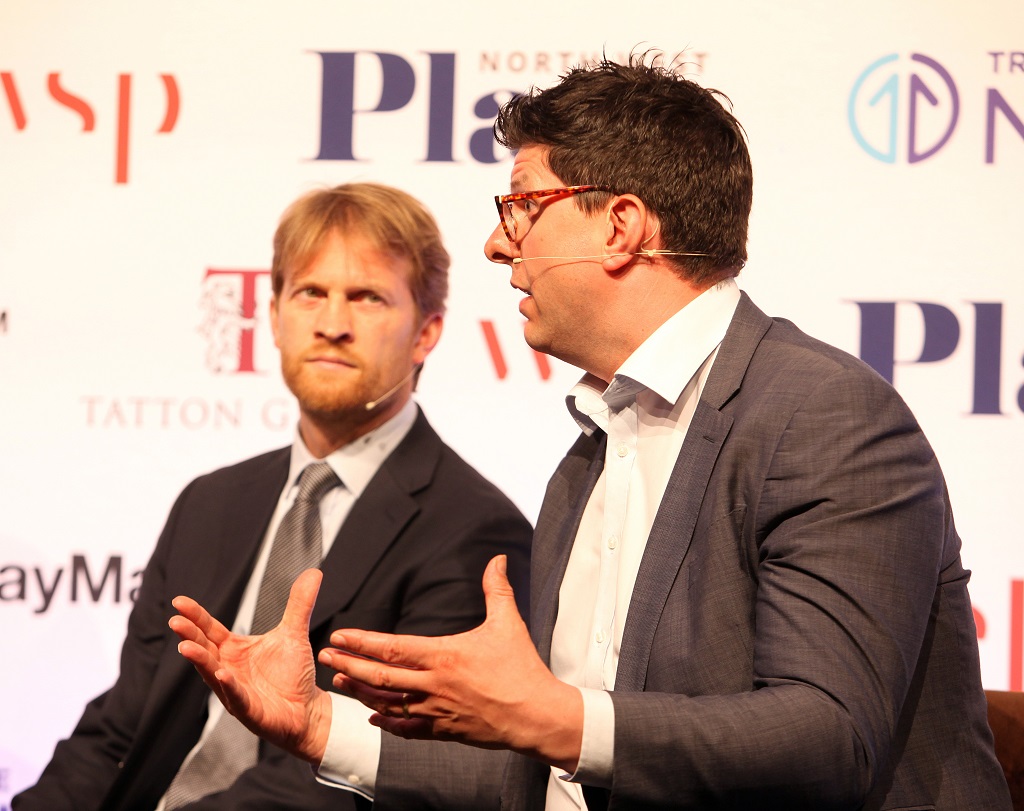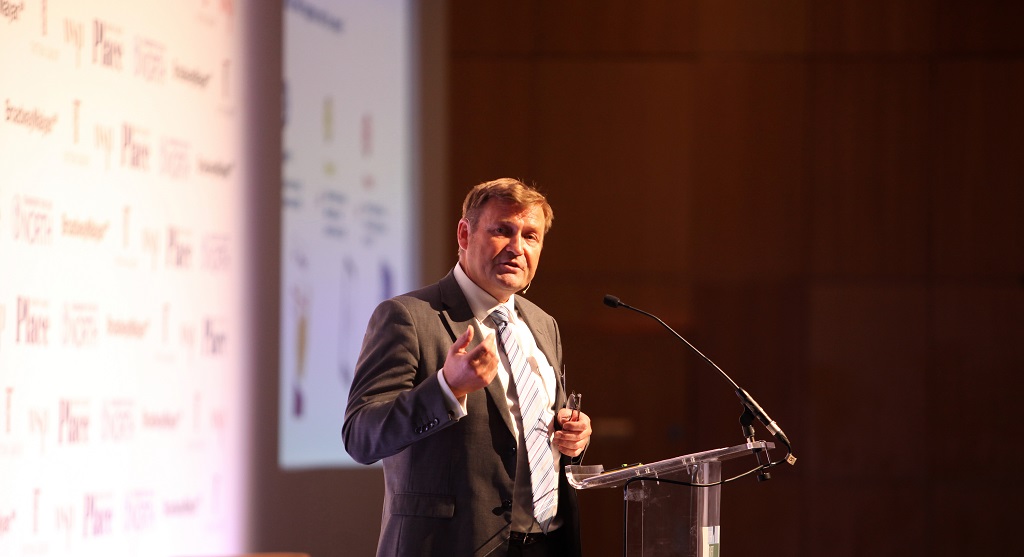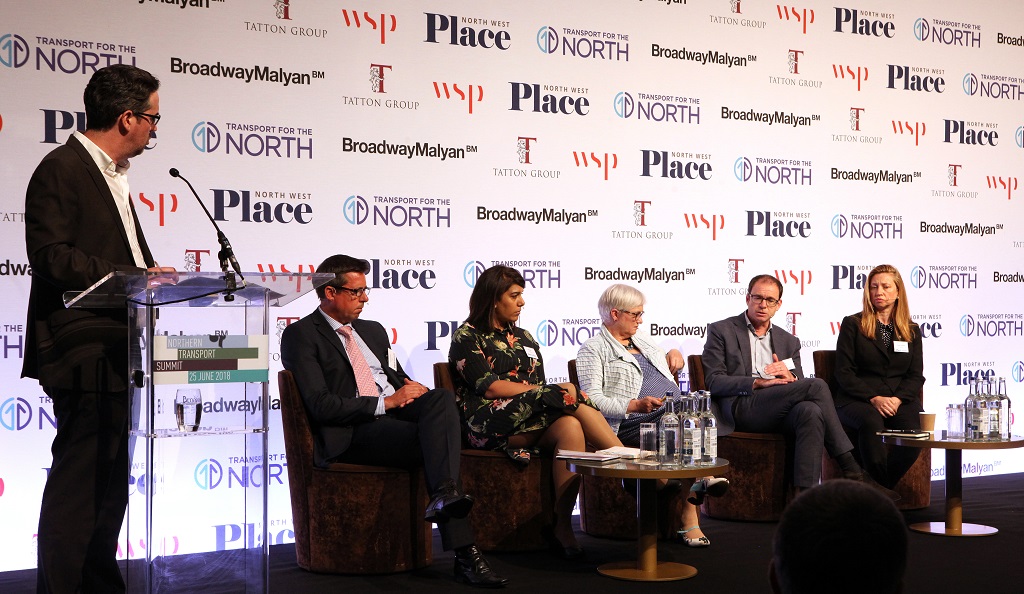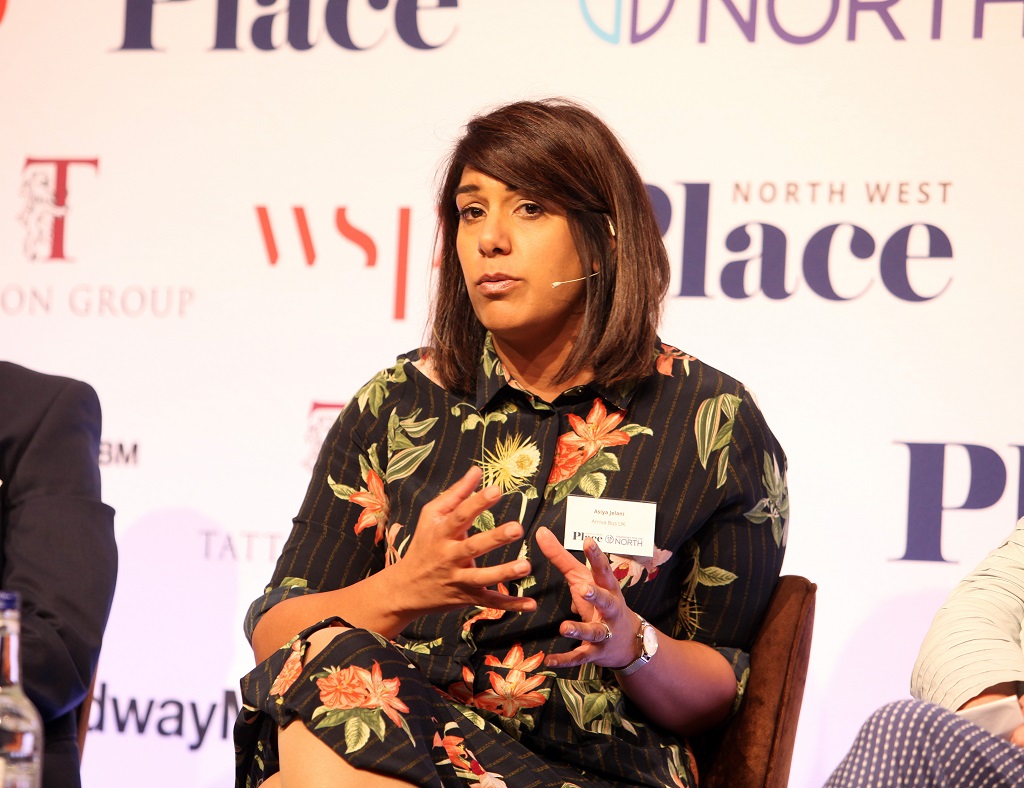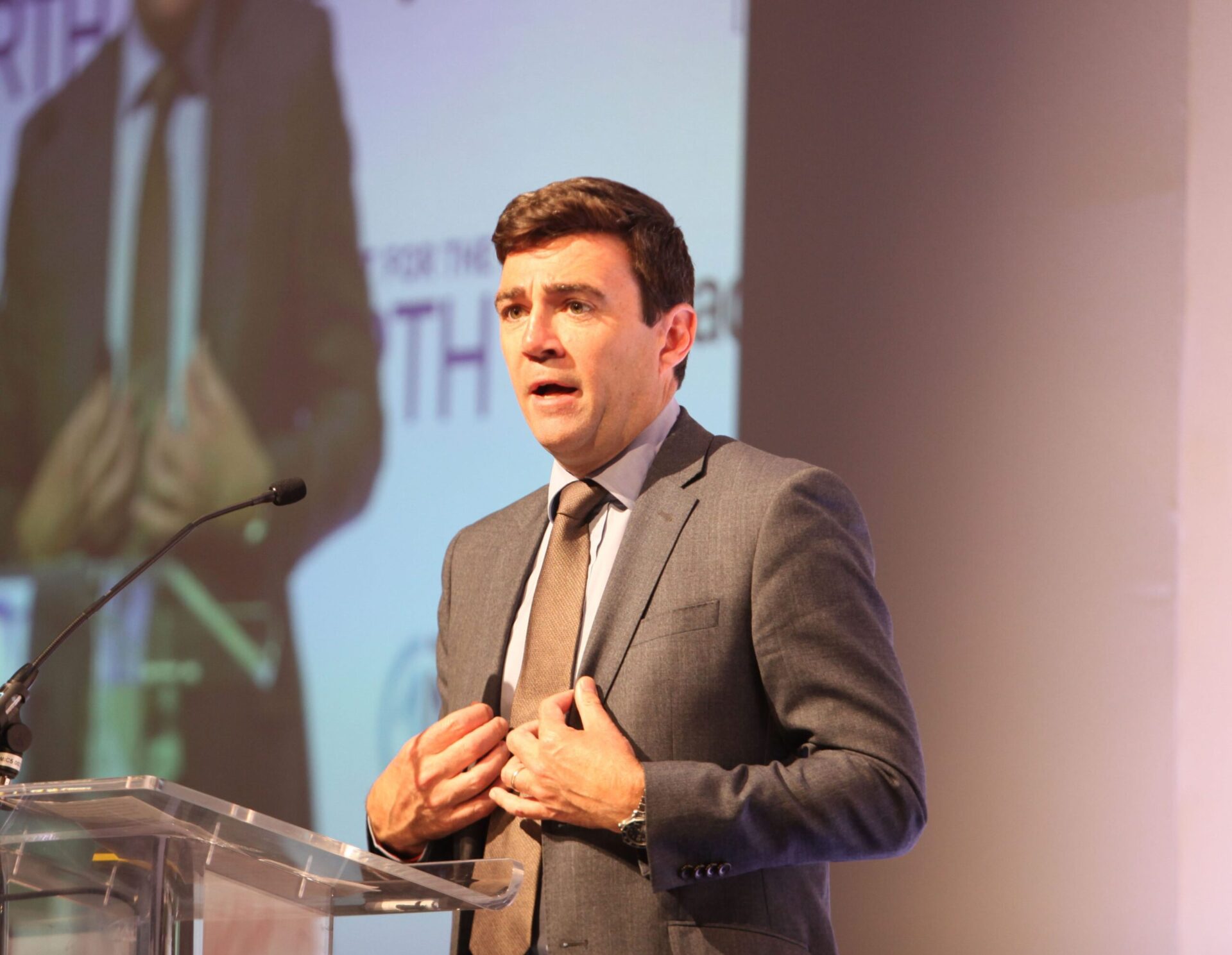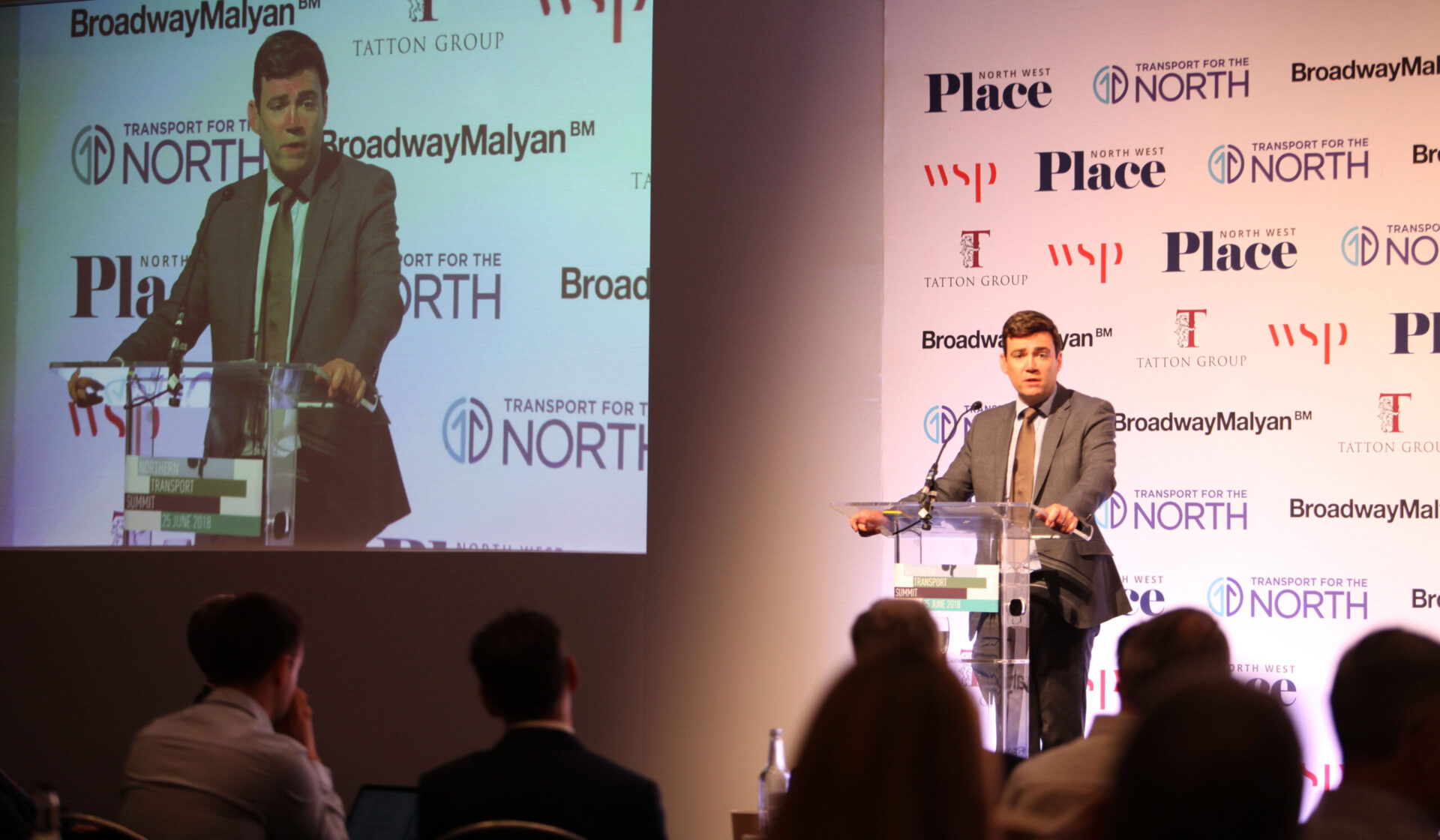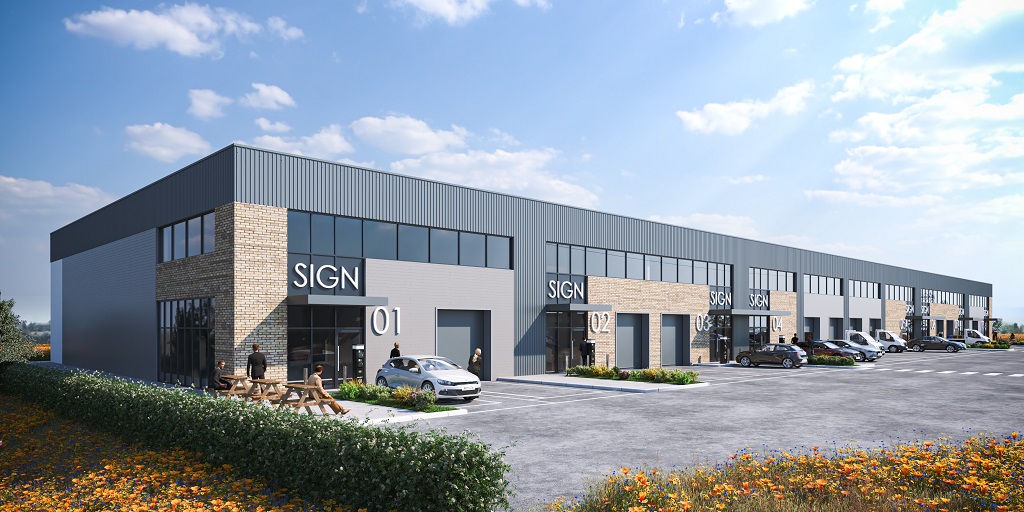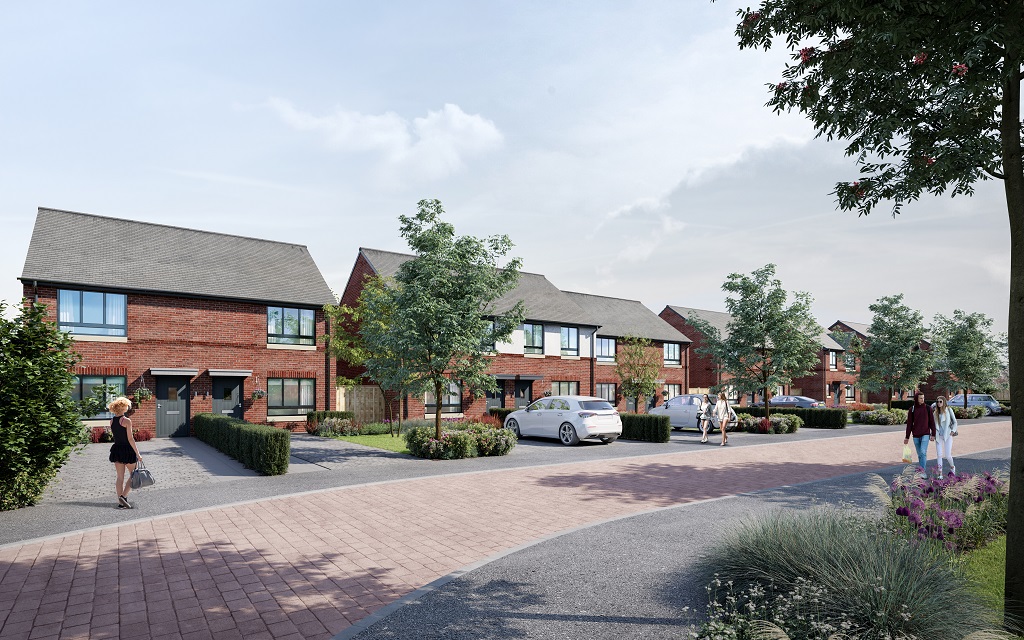Event Summary
Northern Transport Summit | Summary, video + images
Rail chaos dominated the agenda at Place North West’s Northern Transport Summit with leaders across transport, politics, architecture and development calling for more powers to build a Northern rail, road, air, and port network fit for the future.
More than 250 people attended the event at Manchester’s Hilton Hotel, hosted by Place North West in partnership with Transport for the North, and sponsored by Broadway Malyan, Tatton Group, and WSP.
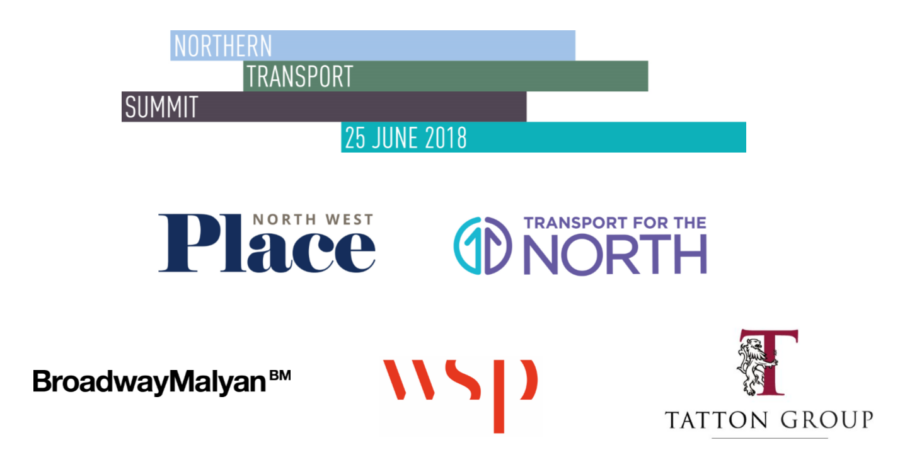
Scroll down for link to slides + gallery
Speakers included Andy Burnham, Mayor of Greater Manchester; Henri Murison, director at the Northern Powerhouse Partnership; Katherine Fairclough, chief executive of Cumbria County Council; Warren Marshall, planning director, Peel Ports Group; Melanie Leech, chief executive, British Property Federation; Steve Rotheram, Mayor of Liverpool City Region; Lynda Shillaw, property chief executive of Manchester Airports Group; Henry Brooks of Tatton Group; Rosslyn Colderley, north of England director at Sustrans; and Bridget Rosewell of the National Infrastructure Commission.
One speaker conspicuous by his absence was Transport Secretary Chris Grayling, who had been confirmed for a keynote speech at the conference, but pulled out to vote on the Government’s proposals for a third runway at Heathrow. Grayling’s decision was met by a protest by trade union RMT, who accused the minister of “chickening out” of answering to the North’s businesses and commuters.
Watch this short video to get a feel for what delegates and speakers would like to see happening in transport in the region:
The event opened with a speech by Barry White, chief executive of Transport for the North.
- White described the UK economy as “an aeroplane flying with one engine”, criticising the historic imbalance between the North, London, and the South East
- Following consultation earlier this year, TfN’s strategic transport plan will be published later this year, and White said a wide range of comments had come back, including more calls for an increased focus on bus travel
- White said the current disruption on the North’s transport network was “entirely unacceptable to both passengers and businesses”, but said TfN would continue to work at “break-neck speed” to bring proposals forward for Northern Powerhouse Rail
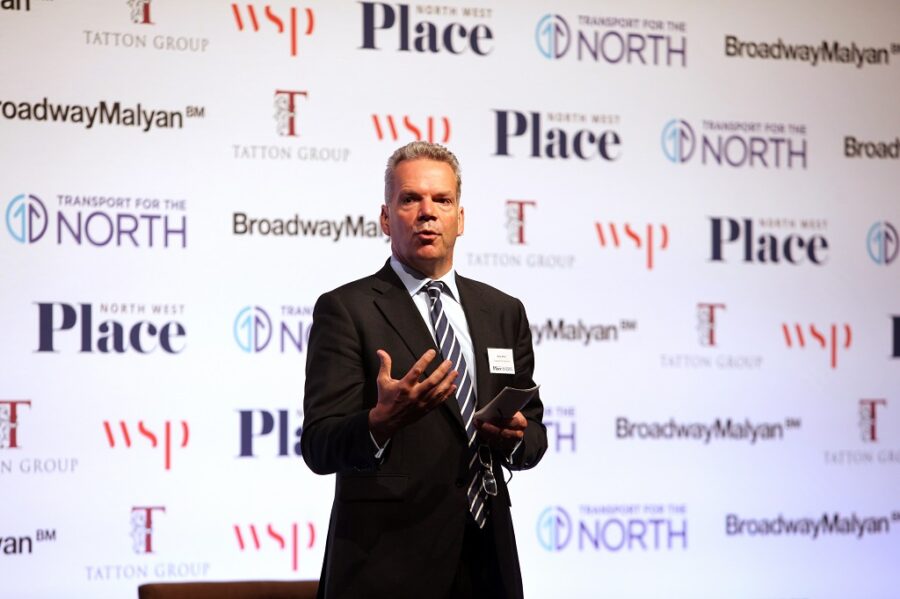
Barry White, Transport for the North
A panel discussion then followed featuring Jon Lamonte, chief executive of Transport for Greater Manchester; Warren Marshall, planning director at Peel Ports Group; Cllr Liam Robinson, chair of the Merseytravel Transport Committee; and Elliot Shaw, executive director of strategy and planning at Highways England.
- Lamonte said TfGM had £40bn of projects “sitting there waiting to roll out” with more plans being worked up to expand the Metrolink network
- Marshall said it had felt like “groundhog day” when talking about roads and ports, and called for more lobbying alongside TfN to get trans-pennine road and rail connectivity in place. He added he had seen “a genuine desire” to get more freight moved off the roads and onto rail and water
- Robinson said he was in favour of nationalising the railways, arguing “train operators and track are not joined up,” and added “the franchise system doesn’t work”. He said Liverpool’s key target was Northern Powerhouse Rail to give the city a link to HS2, which would also free up capacity for freight
- Shaw said he understood the frustrations of motorists when works are ongoing, but said it was “impossible” to improve motorways without some form of construction work: “We need to make improvements in telling people what we’re doing and why – bland yellow signs aren’t good enough”
A presentation from Tim Wood, Northern Powerhouse Rail director at Transport for the North, followed the panel discussion, where he outlined TfN’s progress on the “transformational” rail project.
Once operational the network could add up to £100bn to the North’s GVA and would connect Liverpool to Manchester in 20 minutes, and reduce journey times from Leeds to Manchester to 40 minutes.
He said it would be “a challenging timeframe” but wanted to deliver the project in time for 2033, with the project set to start on site in 2024. He said the scheme “could not be kicked into the long grass” with TfN working closely with the Department for Transport to deliver it.
Contractors bidding for the scheme will be judged on safety and their ability to deliver, and he said TfN would want contractors to look at the project “well before it is designed”, with contracts let on a long-term basis.
Following a networking break, Mayor of Liverpool City Region Steve Rotheram delivered a keynote speech.
- Rotheram said the current state of the North’s rail network was “unacceptable” and said it was “on the cusp of a complete crisis which can’t be allowed to continue”
- Network Rail was “not fit for purpose” with “an opaque and unaccountable structure”
- However, the Mayor said “credit should be given” for the number of projects starting in the last four months but argued that momentum needed to continue, particularly by delivering Northern Powerhouse Rail before delivering Crossrail 2
- “If Chris Grayling were here, I’d urge him to support the North’s vision for Northern Powerhouse Rail,” he said, and added Liverpool’s number one priority would be a twin-track line linking Liverpool to HS2 via a new station built in the Lime Street area
Watch Steve Rotheram’s speech in full below:
A panel discussion focussed on local authority transport plans followed, featuring Katherine Fairclough, chief executive of Cumbria County Council; Nick Gerrard, growth & prosperity programme director at Blackpool Council; Cllr Susan Hinchcliffe, leader of Bradford Council and chair of the West Yorkshire Combined Authority; Hayley Kirkham, head of HS2 growth at Cheshire East Council; Angie Ridgwell, interim chief executive at Lancashire County Council; and Karen Tierney, programme director at the Constellation Partnership.
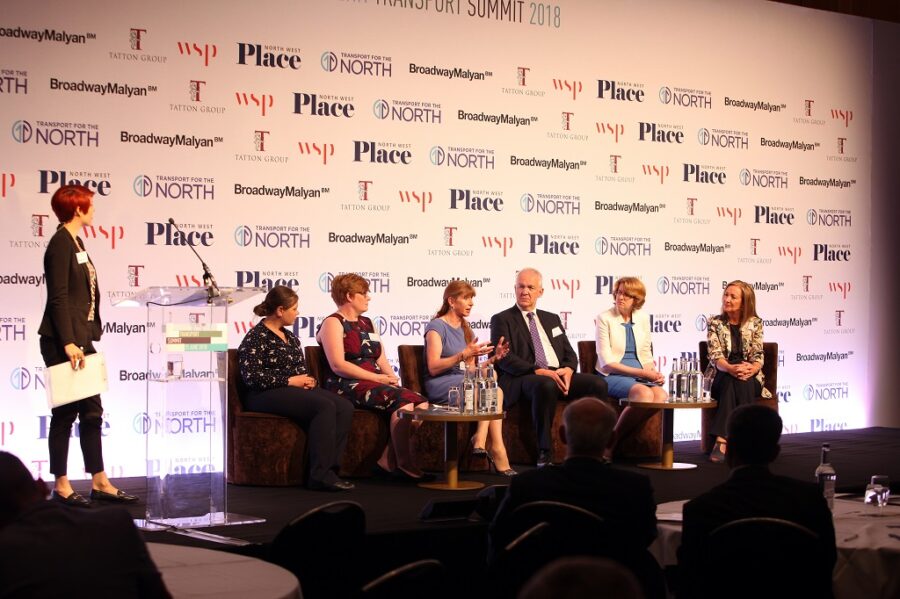
From left: Jessica Middleton-Pugh, Place North West; Hayley Kirkham, Cheshire East Council; Karen Tierney, The Constellation Partnership; Angie Ridgwell, Lacashire County Council; Nick Gerrard, Blackpool Council; Cllr Susan Hinchcliffe, Bradford Council and West Yorkshire Combined Authority; Katherine Fairclough, Cumbria County Council.
- Kirkham said Crewe had “fallen by the wayside over the years” but HS2 represented a massive opportunity to develop the town, with plans being drawn up to deliver nearly 7,000 homes across the area
- Hinchcliffe said east-west connections would be vital to Bradford via a new line linking Manchester and Leeds. This could add another £15bn of GVA to the North, she said, and it was “absolutely the priority” to get more people travelling between Leeds and Bradford via train, with 74% of journeys between the cities currently done by car
- Cumbria has a “unique” mix of urban and rural transport networks, said Fairclough, with strong north-south connections but “far more challenging” east-west links. She said the council was looking at Carlisle as a “sustainable transport hub” for the wider area with increased links to Scotland
- Ridgwell said local authorities need to look at how transport schemes today will service the future and the economic needs of the North: “It would be a crying shame if we make this investment today then it turns out to the demands of the future economy are much different”
- Grimshaw outlined the investment opportunities that new transport projects in Blackpool could bring, including the Airport Enterprise Zone which is set to create 5,000 jobs over 25 years. He also revealed the council was looking at a “major leisure development” on the old Blackpool Central train station
- Tierney said public-private partnerships would be critical to getting transport-led regeneration projects off the ground and added the Constellation Partnership was “open to working with private sector in creative ways” to maximise investment
Following a lunch break, aviation minister Baroness Sugg delivered a keynote speech in place of Transport Secretary Chris Grayling.
- Opening the speech Sugg repeated the apology from the DfT on the North’s rail woes, saying services had been “totally unacceptable” and reassured the audience the Government was “working around the clock with TfN” to address the issues
- She said signing off Heathrow’s third runway was “the biggest infrastructure decision taken in a generation” with “widespread support” for the development from airports in the North
- The third runway would increase the number of flights in and out of Heathrow each day, with 15% of these new flights reserved for domestic flights. She said many of these destinations would be in the North of England and Scotland
- These routes would be commercially viable with discounts due to be put in place. For freight, Heathrow could act as a “nationally significant” hub that would bring many benefits to the North of England and its airports
Watch her speech in full below:
A presentation from Melanie Leech, chief executive of the British Property Federation, followed Sugg.
Leech focussed on the importance of “creating the right climate for investment” around transport hubs, citing a number of examples from across the UK, including at Euston station where the arrival of HS2 will unlock around 54 acres for mixed-use development.
“What investors need to see from local authorities is a clear vision: real estate is a long-term business,” she said. “Pension funds want to see income streams over many years so local authorities and developers need to demonstrate that.”
A panel discussion followed with Henry Brooks, managing director of Tatton Group; Mike Garratt, chairman of MDS Transmodal; Anthony Hatton, strategic projects director at Peel Group; James Heather, development director at U+I; Henri Murison, director at the Northern Powerhouse Partnership; and Lynda Shillaw, divisional chief executive of property at Manchester Airports Group.
- Brooks said to attract investment, the North would need to “present a plan rather than a litany of complaints”. The public sector “needs to act as a catalyst to bring in private sector money”, with local authorities asking for investment rather than bailouts
- Heather said there “frustrations” from U+I around Manchester Piccadilly, which is set to link to the developer’s wider Mayfield project. “We need to know what’s happening with the interventions around Platform 15 and 16, and the worst thing for us is we have no certainty, which makes it more difficult to bring investors in”
- Hatton said last-mile journeys, just as much as major investment in transport projects, were “absolutely critical” to connectivity, which are often the responsibility of local authorities rather than overarching transport bodies
- On recent journeys, Shillaw said she had seen “hundreds of passengers trying to figure out how they get from Manchester Piccadilly to the Airport”, which was “bad for our economy” – passengers should have “faster journey times and bigger trains, simple as that”
- Garratt argued that Government “doesn’t really understand” freight transport which is actually a bigger employer than the public transport sector. Brexit would also create an opportunity for investment particularly around ports where goods will need to be cleared, with companies already looking at the opportunities in Northern ports
- Murison said building better surface connectivity was vital to delivering economic benefits for the North with advanced manufacturing a key focus; getting talent and goods in and out of regional hubs with improved transport would help to build the North’s export economy
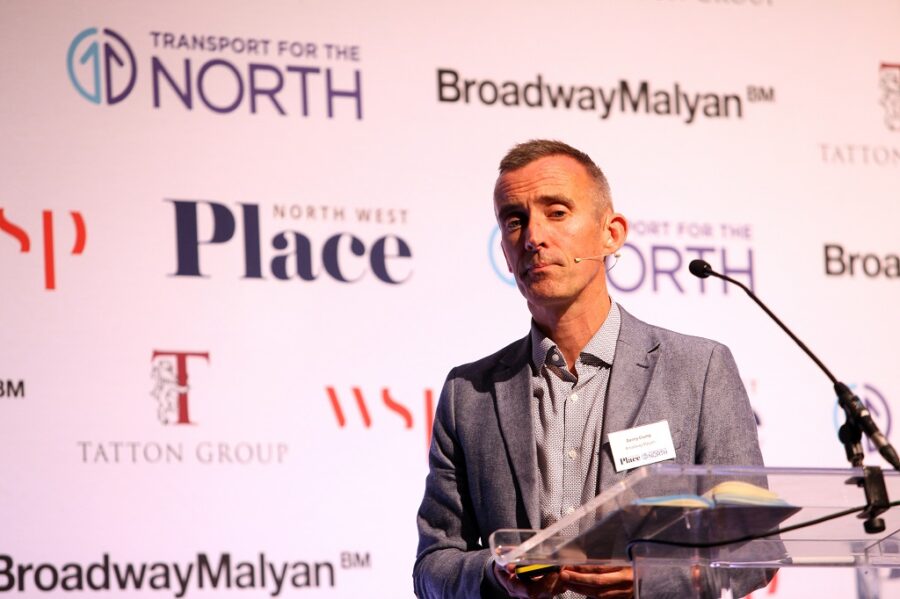
Danny Crump, Broadway Malyan
After a coffee and networking break, director of urbanism at Broadway Malyan Danny Crump outlined the architecture practice’s GM 2080 thinktank, developed in partnership with GL Hearn, Skanska, and WSP.
The thinktank has developed a data-driven model to identify development opportunities in Greater Manchester’s transport hubs and satellite towns, with data gathered on residential density, land ownership, accessibility, and levels of education.
Studies and appraisals were carried out for all of Greater Manchester’s 97 railway stations, which suggested the region’s transit hubs were falling short on measures of sustainability and liveability.
Wigan was chosen for a pilot study, as the only town-centre station in Greater Manchester with a HS2 stop by 2033, and future options laid out by Broadway Malyan include high-density buildings of up to 10 storeys focussed around a station plaza.
Other options include selective redevelopment of brownfield sites within 800m of the town’s two stations, with a “flatter urban form” of around five to six storeys, with a “reimagined town centre core” delivered within 30 years.
A presentation by Alastair Richards, integrated smart travel programme director at Transport for the North followed, which outlined the steps TfN was taking to introduce smart ticketing, contactless payments, and simplified fares across the North’s network.
A three-phase plan is being rolled out, with smart cards for rail made available by December 2018. This will be followed by improved customer information systems and journey planning from later this year, with the third phase, account-based ticketing via contactless payments, coming on stream in 2019.
Richards said the North’s network needed to tailor the products available to different commuting patterns. The third phase would feature capped daily and weekly pricing on multi-modal journeys, with the payments made by an app or via a bank card.
This would also benefit operators, he said, unlike now where many journeys are not paid for – only 43 of the North’s 620 stations have ticket gates.
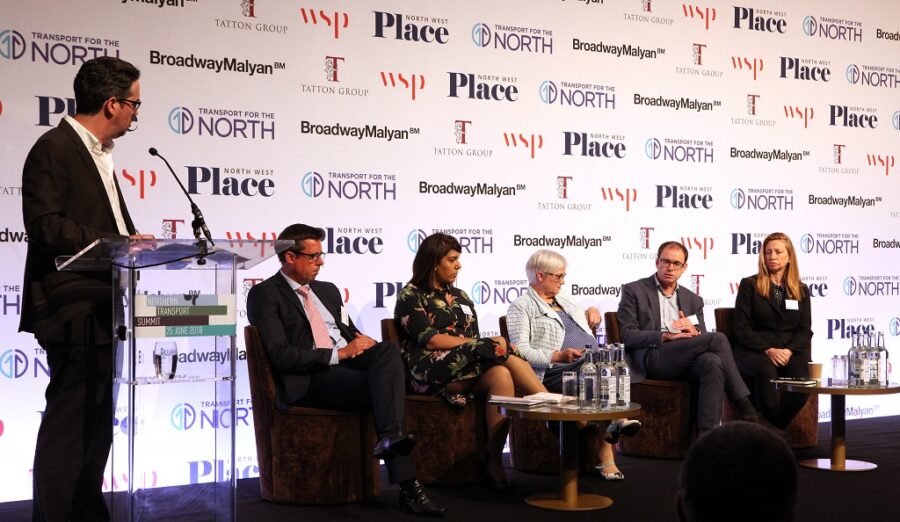
From left: Paul Unger, PlaceTech; Adrian Kemp, WSP; Asiya Jelani, Arriva Bus UK; Bridget Rosewell OBE, National Infrastructure Commission; Paul Bell, Ryder Architecture; Rosslyn Colderley, Sustrans
A future transport panel then followed featuring Paul Bell, partner at Ryder Architecture; Rosslyn Colderley, North of England director at Sustrans; Asiya Jelani, business development director for demand responsive transport at Arriva Bus UK; Adrian Kemp, director at WSP; and Bridget Rosewell, commissioner at the National Infrastructure Commission.
- Kemp called for “total integration” of the North’s transport, including working cross-agency, cross-authority, and cross-operator. Transport for the North, he said, would be able to provide that platform which would in turn help investment decisions
- However, Rosewell said she “fundamentally disagreed” with Kemp’s view, arguing that “space and flexibility” within transport networks was needed: “We can’t over-integrate and over-plan; it just gets in the way of doing stuff”
- Bell said hyperloop technology was being developed with a concept featuring a “Northern Arc” running between Liverpool, Newcastle, and Glasgow already being put forward by Ryder Architecture. This sort of technology would allow the North “to be at the forefront of technology again” and could “attract the best engineers from around the world” if an investment was made
- Jelani argued that when investing in technology, businesses “shouldn’t be afraid of failure”, with proper testing rather than just concepts needed to make future transport more open to investment
To close the conference, Mayor of Greater Manchester Andy Burnham delivered a keynote speech focussed on the North’s future transport needs.
Burnham called for the Government to make a decision on electrification of Northern railways, and on HS2, criticised central Government for pushing for a “sub-optimal” option for Manchester Piccadilly station, with the DfT understood to prefer a surface level station.
“That would take away some of the most prime real estate in the whole of the North,” he said. “It also means any east-west service would have to be a turnback service – that’s not a 21st century rail system, so why should accept second best?”
He also focussed on the need for a timetable for Northern Powerhouse rail and devolved control of transport network and infrastructure.
“Stations are the fabric of the local community, so how can it be they are run from on-high in a national level?” he asked. “Over half of Greater Manchester’s 97 rail stations are inaccessible to disabled people – that demolishes the case for the status quo.”
Concluding his speech, Burnham said: “We were promised investment, and we’ll remember what we were promised – we’re not going away. The vision of the Northern Powerhouse from George Osborne in 2014 was right and remains so: now we just need a firm commitment from the Government.”
Watch Andy Burnham’s speech in full below:
To view the presentations given on the day, visit Place North West’s Slideshare page
Click any image below to launch gallery
- Barry White, Transport for the North
- Barry White, Transport for the North
- Jessica Middleton-Pugh, Place North West
- From left: Elliot Shaw, Highways England, Cllr Liam Robinson, Merseytravel Transport Committee and Liverpool City Region; Warren Marshall, Peel Ports Group; Jon Lamonte, Transport for Greater Manchester
- Jon Lamonte, Transport for Greater Manchester
- From left: Cllr Liam Robinson, Merseytravel Transport Committee and Liverpool City Region; Warren Marshall, Peel Ports Group; Jon Lamonte, Transport for Greater Manchester
- Tim Wood, Transport for the North
- Tim Wood, Transport for the North
- Tim Wood, Transport for the North; Jessica Middleton-Pugh, Place North West
- Steve Rotheram, Metro Mayor of the Liverpool City Region
- Steve Rotheram, Metro Mayor of the Liverpool City Region
- From left: Jessica Middleton-Pugh, Place North West; Hayley Kirkham, Cheshire East Council; Karen Tierney, The Constellation Partnership; Angie Ridgwell, Lancashire County Council; Nick Gerrard, Blackpool Council; Cllr Susan Hinchcliffe, Bradford Council and West Yorkshire Combined Authority; Katherine Fairclough, Cumbria County Council
- From left: Nick Gerrard, Blackpool Council; Cllr Susan Hinchcliffe, Bradford Council and West Yorkshire Combined Authority; Katherine Fairclough, Cumbria County Council
- Angie Ridgwell, Lancashire County Council
- From left: Jessica Middleton-Pugh, Place North West; Hayley Kirkham, Cheshire East Council; Karen Tierney, The Constellation Partnership; Angie Ridgwell, Lancashire County Council; Nick Gerrard, Blackpool Council; Cllr Susan Hinchcliffe, Bradford Council and West Yorkshire Combined Authority; Katherine Fairclough, Cumbria County Council
- Cllr Susan Hinchcliffe, Bradford Council and West Yorkshire Combined Authority
- Katherine Fairclough, Cumbria County Council
- Baroness Sugg, Minister of Aviation
- Baroness Sugg, Minister of Aviation
- Melanie Leech, British Property Federation
- From left: Melanie Leech, British Property Federation; Jessica Middleton-Pugh, Place North West
- From left: Henry Brooks, Tatton Group; Mike Garratt, MDS Transmodal and CILT Freight & Logistics Policy Group; Lynda Shillaw, Manchester Airports Group; James Heather, U+ I; Anthony Hatton, Peel Group and Atlantic Gateway; Henri Murison, Northern Powerhouse Partnership
- Henri Murison, Northern Powerhouse Partnership
- Henri Murison, Northern Powerhouse Partnership
- Alastair Richards, Transport for the North
- From left: Paul Unger, PlaceTech; Adrian Kemp, WSP; Asiya Jelani, Arriva Bus UK; Bridget Rosewell OBE, National Infrastructure Commission; Paul Bell, Ryder Architecture; Rosslyn Colderley, Sustrans
- Asiya Jelani, Arriva Bus UK
- Andy Burnham, Mayor of Greater Manchester
- Andy Burnham, Mayor of Greater Manchester


